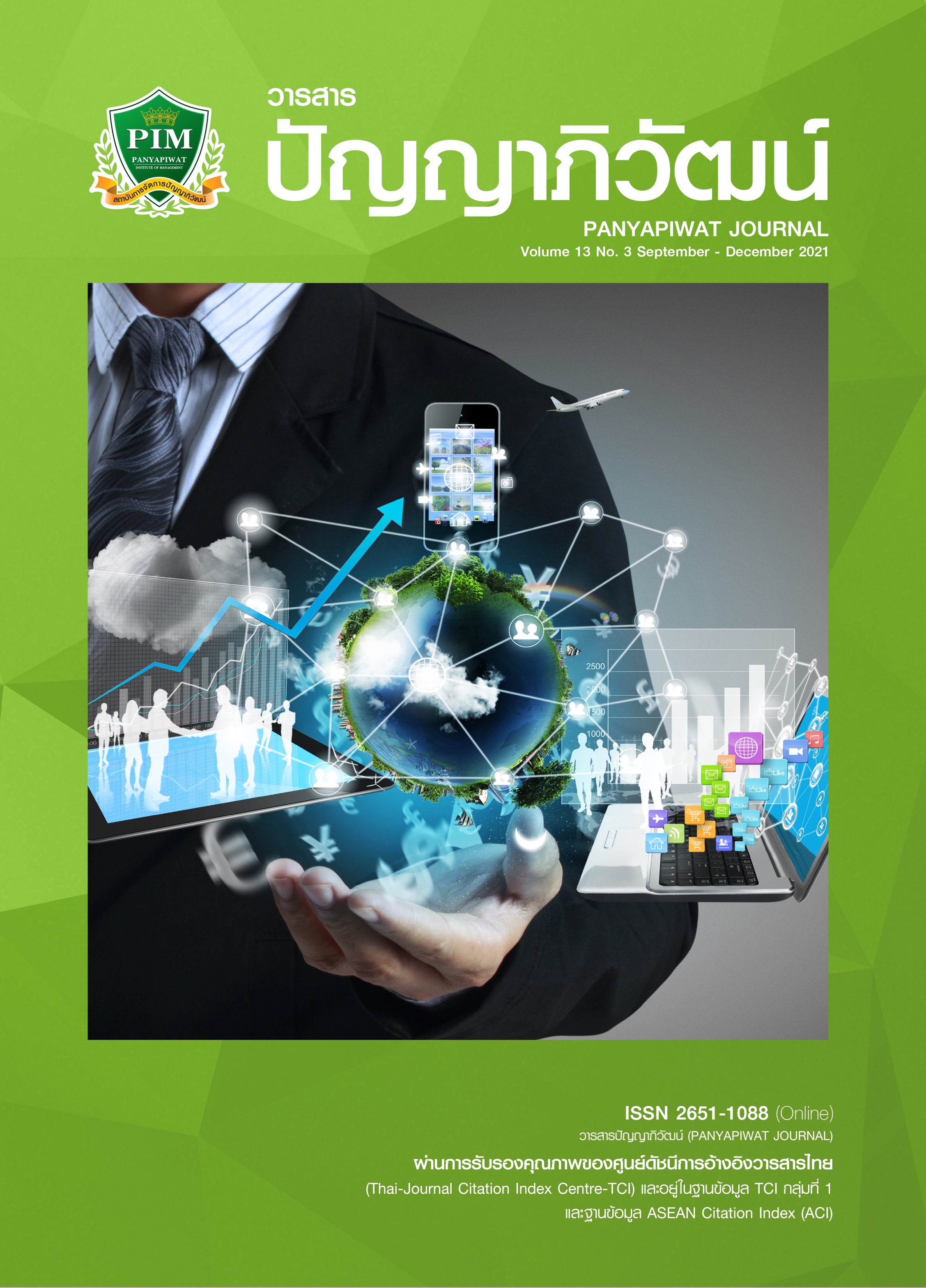แนวทางปฏิบัติ 4 กระบวนการจัดการเรียนการสอนระดับอุดมศึกษา ตามหลักปรัชญาของเศรษฐกิจพอเพียงสู่การพัฒนาการอุดมศึกษา 4.0
Main Article Content
บทคัดย่อ
บทความนี้อธิบายถึงความสำคัญและแนวทางปฏิบัติ 4 กระบวนการของการประยุกต์หลักปรัชญาของเศรษฐกิจพอเพียงในการจัดการเรียนการสอนระดับอุดมศึกษาสู่การพัฒนาการอุดมศึกษา 4.0 ประกอบด้วยการปรับคำอธิบายรายวิชาและรายละเอียดของเนื้อหา การปรับกิจกรรมการเรียนการสอน การปรับใช้สื่อการเรียนการสอน แหล่งเรียนรู้และอื่นๆ และการปรับการวัดผลและการประเมินผล เพื่อประโยชน์ในการพัฒนาศักยภาพของคณาจารย์และนักศึกษาในสถาบันอุดมศึกษาให้มีการเสริมสร้างนวัตกรรมทางการศึกษาและ
ฐานสมรรถนะที่มั่นคงมั่งคั่งและยั่งยืนต่อการดำรงชีวิต ครอบครัว สังคม และประเทศชาติตลอดไป
Article Details
“ข้าพเจ้าและผู้เขียนร่วม (ถ้ามี) ขอรับรองว่า บทความที่เสนอมานี้ยังไม่เคยได้รับการตีพิมพ์และไม่ได้อยู่ระหว่างกระบวนการพิจารณาลงตีพิมพ์ในวารสารหรือแหล่งเผยแพร่อื่นใด ข้าพเจ้าและผู้เขียนร่วมยอมรับหลักเกณฑ์การพิจารณาต้นฉบับ ทั้งยินยอมให้กองบรรณาธิการมีสิทธิ์พิจารณาและตรวจแก้ต้นฉบับได้ตามที่เห็นสมควร พร้อมนี้ขอมอบลิขสิทธิ์บทความที่ได้รับการตีพิมพ์ให้แก่สถาบันการจัดการปัญญาภิวัฒน์หากมีการฟ้องร้องเรื่องการละเมิดลิขสิทธิ์เกี่ยวกับภาพ กราฟ ข้อความส่วนใดส่วนหนึ่งและ/หรือข้อคิดเห็นที่ปรากฏในบทความข้าพเจ้าและผู้เขียนร่วมยินยอมรับผิดชอบแต่เพียงฝ่ายเดียว”
เอกสารอ้างอิง
American Library Association. (2007). Information Literacy Competency Standards for Higher Education. Retrieved August 30, 2016, from http://www.ala.org/ala/acrl/acrlstandards/
Mascharat, T. (2007). Learning Management Model According to the King’s Philosophy of Sufficiency Economy. Bangkok: Tharnaksorn Publishing Co., Ltd. [in Thai]
Moate, R. M. & Cox, J. A. (2015). Learner-centered Pedagogy Consideration for Application in a Didactic Course. The Professional Counselor, 5(3), 379-389. http://doi.org/10.15241/mm.5.3.379
Phiboonsarawut, P. (2007). The Drive of Sufficiency Economy in Education. Bangkok: The Research Project of Sufficiency Economy, Crown Property Bureau. [in Thai]
Puttakosa, K. (2011). Handbook of Learning Community Development. Bangkok: National Research Council of Thailand. [in Thai]
Ritcharoon, P. (2012). Principles of Educational Measurement and Evaluation (7thed.). Bangkok: House of Kermit Co., Ltd. [in Thai]
Saengprateepthong, W. (2013). Measurement and Evaluation. Nontaburi: College of Education, Sukhothaithammathirat University. [in Thai]
Sathboonshang, S. (2007). Seven Steps of Practice to the Way of Sufficiency Economy (2nd ed.). Bangkok: SE-ED Ucation. [in Thai]
The Office of the Education Council. (2019). National Educational Standards 2018. Bangkok: 21st Century. [in Thai]
Wiboonsri, Y. R. (2011). Measurement and Test Design for Achievement (10th ed.). Bangkok: Chulalongkorn University Press. [in Thai]


